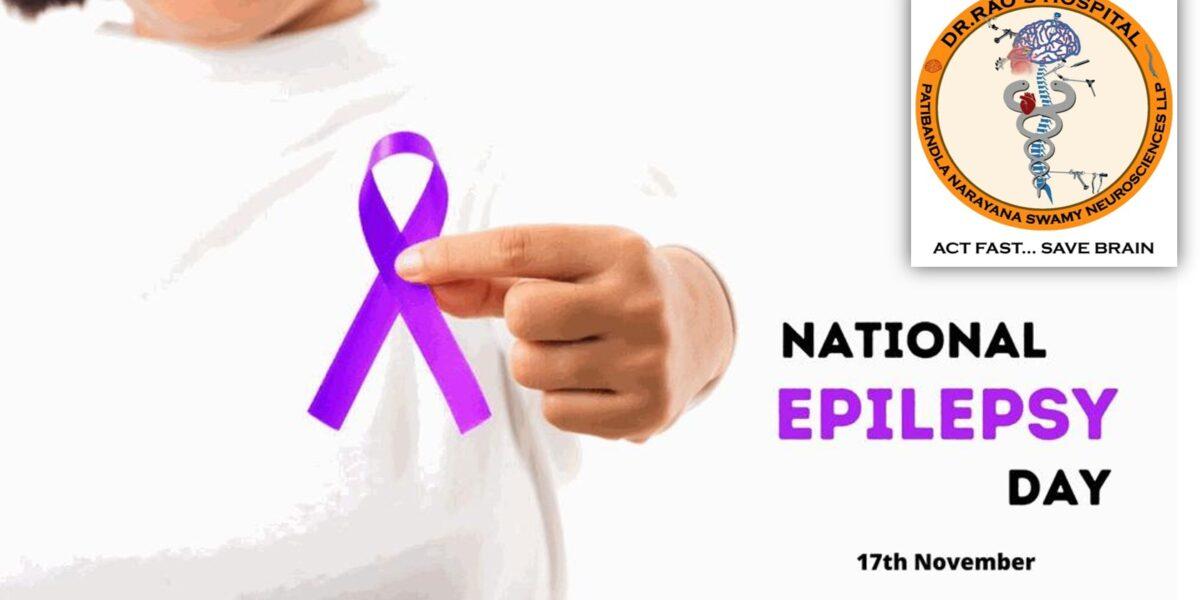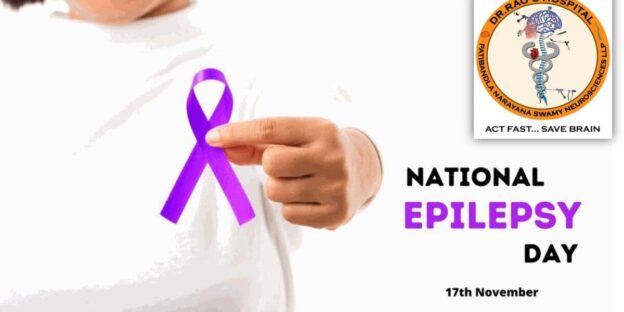The best epilepsy education at Dr Raos hospital
Epilepsy Education – Today is National epilepsy day and we celebrate this to raise the awareness in public about epilepsy. Epilepsy is a neurological disorder that affects people of all ages. It is characterized by recurrent seizures that can vary in severity. Epilepsy can be caused by a variety of factors, including genetic predisposition, head trauma, and brain tumors. There are many different types of epilepsy, each with its own set of symptoms. Treatment for epilepsy typically involves medication, but in some cases, surgery may be necessary. Epilepsy can be a debilitating condition, but with proper treatment, many people with epilepsy are able to live normal, productive lives.
Epilepsy Causes
There are many different causes of epilepsy. In some cases, the cause is unknown. However, there are some known risk factors that can increase a person’s chances of developing epilepsy. These include genetic predisposition, head trauma, and brain tumors. Epilepsy can also be caused by stroke or other neurological conditions. In many cases, more than one factor is involved in the development of epilepsy. In a recent mayoclinic.
Epilepsy Syndromes
There are many different types of epilepsy, each with its own set of symptoms. Some of the more common types of epilepsy include generalized epilepsy, focal epilepsy, and infantile spasms. Generalized epilepsy is characterized by seizures that affect the entire brain. Focal epilepsy is characterized by seizures that originate in a specific area of the brain. Infantile spasms are a type of epilepsy that affects young children.
Epilepsy Risk Factors
There are many different risk factors for epilepsy. These include genetic predisposition, head trauma, and brain tumors. Epilepsy can also be caused by stroke or other neurological conditions. In many cases, more than one factor is involved in the development of epilepsy.
Epilepsy Myths and Facts
There are many myths and misconceptions about epilepsy. Some people believe that epilepsy is contagious or that it is a sign of mental illness. However, neither of these things is true. Epilepsy is not contagious and it is not a sign of mental illness. People with epilepsy can lead normal, productive lives with proper treatment.
Epilepsy First Aid
If someone has a seizure, it is important to stay calm and provide first aid if necessary. First, make sure that the person is in a safe place where they will not fall or hurt themselves. Then, gently cushion their head and neck with a pillow or blanket. Do not try to restrain the person or force anything into their mouth. Once the seizure has ended, help the person to a comfortable position and provide them with any necessary medical care. If the person does not have a medical ID bracelet, be sure to let emergency responders know that the person has epilepsy.
Epilepsy Status Epilepticus Treatment
Status epilepticus is a medical emergency that requires immediate treatment. If someone is having a seizure and does not regain consciousness within five minutes, it is considered status epilepticus. If this happens, call 9010056444 or 108 immediately and provide first aid if necessary. Once the person has been stabilized, they will be taken to the hospital for further treatment. Treatment for status epilepticus typically involves medication and close monitoring. In some cases, surgery may be necessary.
Living with Epilepsy
Epilepsy can be a debilitating condition, but with proper treatment, many people with epilepsy are able to live normal, productive lives. There are many resources available for people with epilepsy and their families. These resources can provide information and support to help people manage their condition and live fulfilling lives.
looking for the best epilepsy care, call 9010056444 or 9010057444 for the best epilepsy care at Dr Raos hospital, Guntur. You will find the international standard best epilepsy management includes the medication and surgery are available.


